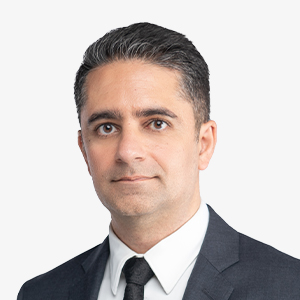Large Cap Growth Fund
Mutual Funds | Equities
Large Cap Growth Fund
YTD RETURN
0.00%
Why Invest
Proprietary Economic Value Added (“EVA”) Framework
Measures market-based expectations
Integrated Public and Private Market Lens
Informs bottom-up and top-down views for stock selection
Anchored in Active Engagement
Suggestivism drives our philosophy to turn great companies into great stock picks
In the News
In a recent interview with CNBC, Charles Kantor and Marc Regenbaum, portfolio managers of Neuberger Berman Large Cap Growth Fund, explained how they tuned out the tech noise and focused on quality growth names to help them limit losses in 2022
Read ArticleMorningstar Rating
For each retail mutual fund with at least a three-year history, Morningstar calculates a Morningstar Rating based on a Morningstar Risk-Adjusted Return measure that accounts for variation in a fund’s monthly performance (including the effects of sales charges, loads, and redemption fees), placing more emphasis on downward variations and rewarding consistent performance. The top 10% of funds in each category receive five stars, the next 22.5% receive four stars, the next 35% receive three stars, the next 22.5% receive two stars and the bottom 10% receive one star. (Each share class is counted as a fraction of one fund within this scale and rated separately, which may cause slight variations in the distribution percentages.) The Overall Morningstar Rating for a retail mutual fund is derived from a weighted average of the performance figures associated with its three-, five- and ten-year (if applicable) Morningstar Rating metrics. Ratings are ©2024 Morningstar, Inc. All Rights Reserved. The information contained herein: (1) is proprietary to Morningstar and/or its content providers; (2) may not be copied or distributed; and (3) is not warranted to be accurate, complete or timely. Neither Morningstar nor its content providers are responsible for any damages or losses arising from any use of this information.
Top 10 Holdings
Portfolio holdings are expressed as a percentage and are calculated by taking the market value of each holding and dividing it by the Fund's NAV. Portfolio holdings and other characteristics are current as of the date shown and are subject to change.
For Class R6, total (net) expense represents, and for Institutional Class, Class A, Class C, Class R3, Investor, Trust and Advisor Classes, gross expense represents, the total annual operating expenses that shareholders pay (after the effect of fee waivers and/or expense reimbursement). The Fund’s Manager has contractually undertaken to waive and/or reimburse certain fees and expenses of the Fund so that the total annual operating expenses are capped (excluding interest, brokerage commissions, acquired fund fees and expenses, taxes including any expenses relating to tax reclaims, dividend and interest expenses relating to short sales, and extraordinary expenses, if any, consequently, total (net) expenses may exceed the contractual cap) through 08/31/2027 for Institutional Class at 0.75%, 1.11% for Class A, 1.86% for Class C, 1.36% for Class R3, Advisor and Trust Classes at 1.50% and Class R6 are capped at 0.57% until 12/31/2024 and 0.65% from 1/1/2025 until 8/31/2027 (each as a % of average net assets). Absent such arrangements, which cannot be changed without Board approval, the returns may have been lower. Information as of the most recent prospectuses dated December 18, 2023, as amended and supplemented.
Beta is a measure of market-related risk (expressed between 0-1%) of a portfolio compared to that of the overall market, as represented by an index. The lower the beta the lower the sensitivity to the movements of the market, as represented by the index.
Standard Deviation is a statistical measure of portfolio risk. The Standard Deviation describes the average deviation of the portfolio returns from the mean portfolio return over a certain period of time. Standard Deviation measures how wide this range of returns typically is. The wider the typical range of returns, the higher the Standard Deviation of returns, and the higher the portfolio risk.
Active Share measures the percentage of mutual fund assets that are invested differently from the benchmark, and will range between 0% and 100%, Funds with an active share below 20% are likely to be pure index funds, while those with an active share between 20% and 60% are considered to be closet index funds.
Charles C. Kantor, Managing Director, joined Neuberger Berman in 2000 and currently serves as a member of the firm’s Partnership Committee. Charles is the founder and Senior Portfolio Manager of the Kantor Group, which manages over $10 billion in public equity, fixed income and private market strategies for high net worth and institutional clients. His team is also responsible for managing Neuberger Berman’s Long Short and Large Cap Growth strategy. Prior to joining the firm, Charles was a managing director of Stern Stewart’s Financial Institutions division. There he advised clients on implementing EVA-based financial management systems and co-authored academic papers in the Journal of Applied Corporate Finance. In addition, Charles is a commentator and contributor to various financial and business news media outlets. He earned a Bachelor of Commerce in Accounting and Economics from the University of Cape Town, South Africa, and an MBA (with honors) from Harvard University Graduate School of Business.



